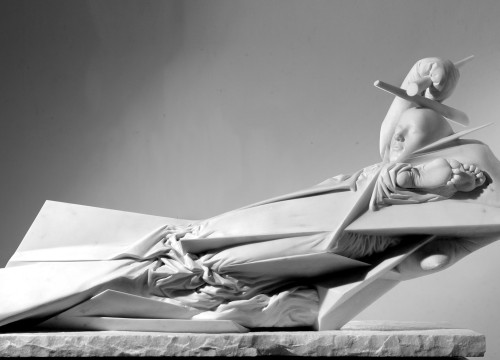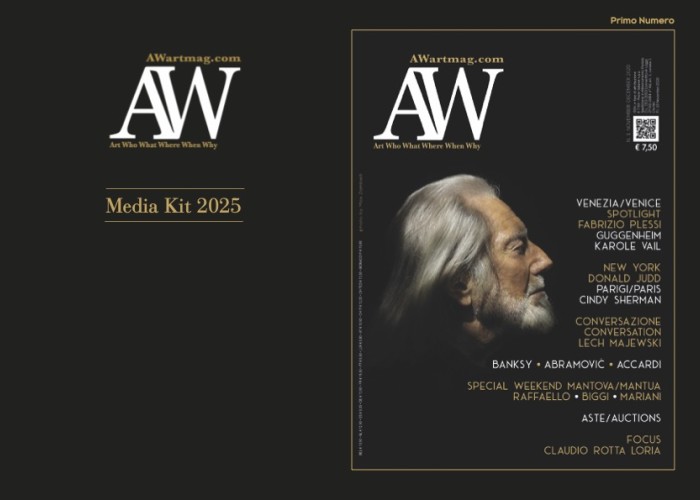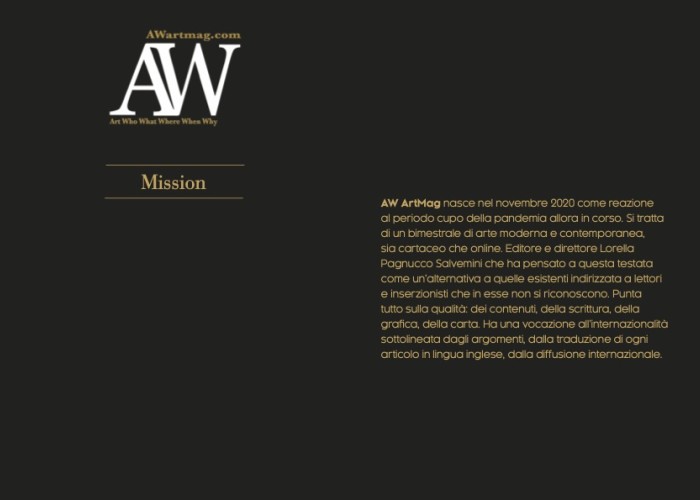Once upon a time, during an auction, people would challenge each other to the last breath. You clearly knew who was your opponent or, at the very least, the bidder who was least likely to yield. Often, you would settle at the back of the room to better understand the moods of what was unfolding before you, without giving your opponents any advantage. Then, gradually, the practice of phone bidding became widespread. An opponent hiding behind a wire, with the support of a kind assistant, ready to intelligently stimulate his or her aspirations. It seemed that the real, final frontier was, finally, the web platform, the link to the auction house, the mix of the room ready to move between the past and the present, keeping it all in, tradition and innovation. And the wooden hammer at the center of everything, as in the ages of ages. Lacking, until now, was a 'quick, agile intermediation. Over here the seller, over there the bidder, in between simply the lot, conveniently photographed, described in summary, without useless, trivial chatter. With seconds punctuated by technology, free of words. And a quick, almost aseptic organization that can immediately guarantee authenticity and payments. Credit cards will do the rest. But in this uncontained horizon, in which everyone is distant, no one knows his opponent, everything is played with the press of a finger, everyone is simply marked by a number, by an electronic paddle. You don't even know anymore who you have to hate for the loss of a lottery. It is, therefore, an even more arduous psychological battle, because your enemy is invisible, inscrutable, and you don't even know its connotations. It could be that obscure collector you met casually at that artist's last solo show. Or that gallerist who had rock-bo prices and, for years, had been treating the artist, sure, but making people believe he possessed the holy grail. Unknown adversaries. Ghosts. Incorporeal, almost alien. Perhaps only owning a single prehensile finger, like ET. Able to move on command, at the right moment, time to cancel your bid, nothing more. And you are in the shadows, trying to understand, to trace the footprints of that tall obstacle, as your blood boils and moods become a roller coaster. Here it is, the breakthrough of collecting modernity. The moods of privacy have ended up, by now, distancing you from everything, made you a distant point that has only one damned function, that of relaunching while it can, while it has some gas left. Just a guest appareance on the scene, nothing more. Nothing like the same tycoons of the 1900s, the ones who offered in the hall in person, alongside beautiful women, while many knew in detail the extraordinary collection their demon had managed to build. And all, today, remain in their computer isolation, waiting for the passing prey, ready to check that the computer does not play tricks, that the connection does not break, not even for a moment. And then, nicknames that conceal other names, other identities, in some ways unknown even to themselves. I know enthusiasts, registered on various auction houses, who constantly forget their passwords and, while keeping an up-to-date address book, are often laboriously forced to retrieve entry codes at the last moment, in the remaining minutes, wandering through the darkness of email. Without deeming it, perhaps, an alarm, a sign of fate, the hidden and inscrutable need to stay away from that hammer. And then there are those who barricade themselves in their homes, who unplug their cell phones, who try to make a few last phone calls to understand the interest circulating around a particular painting. Not to mention the strange rituals that accompany the competition. Prayers, amulets, new mice hooked up in search of the luck of a charm. And when the magic moment arrives, here, often, is the auctioneer resetting everyone's hopes, talking about a decidedly high counter bid, on which he still reserves the right to raise. And everything withers, suddenly. A few computers, seething, shut down immediately, a few others close in awkward silence, a few more watch on mute the spectacle of gloomy wealth produced so, brazenly, violently, before their eyes.
A mockery of poverty, a shout of superiority that leaves everyone uncertain. In the room, perhaps, there is still a timid raise, to simply seal a presence, while the further, immediate offer from the dealer makes it clear that the game is closed, before it has even been opened. And while the auctioneer assigns the lot, no one can investigate the thousands of web-based participant waivers. From a series of missed appointments due to unavoidable commitments," to a complicated mechanism of economic initiatives to be ready for that purchase, from a simple evening at the theater, to the traditional game of burraco. A world that moved, confusedly, around an idea, around a suggestion, around a useless provocation. Without knowing that everything, with that bid at the counter, was already decided from the start, with the force of numbers once again first, destined for an unattainable flight.























